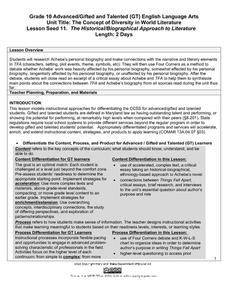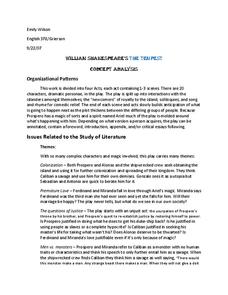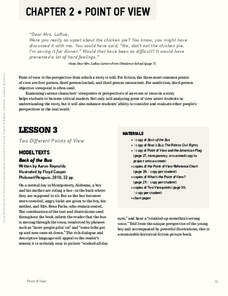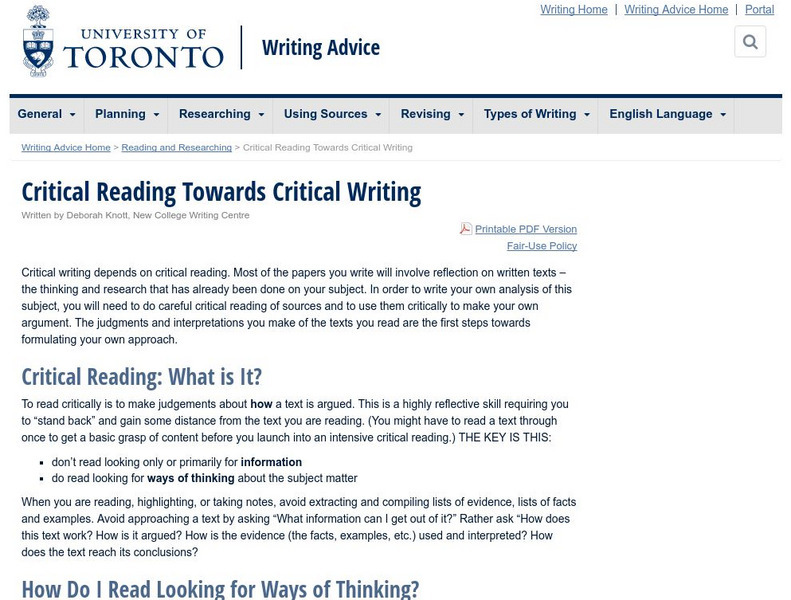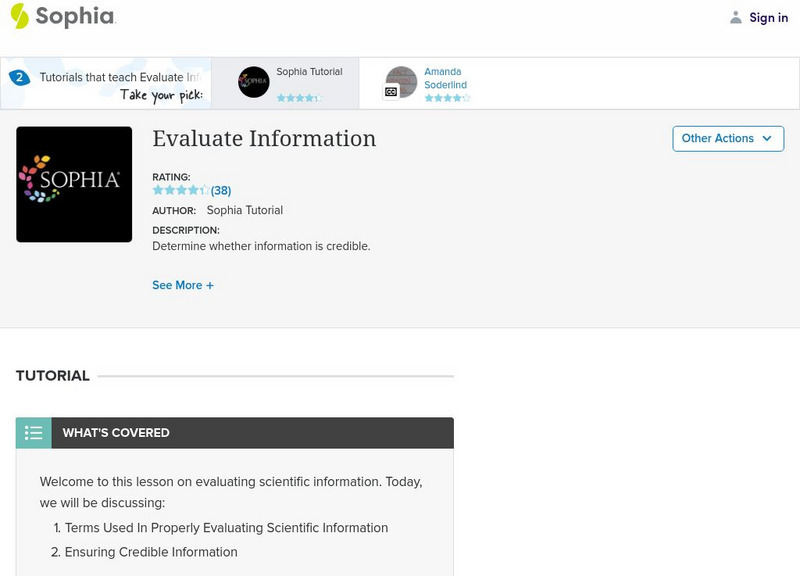Code.org
Cleaning Data
"Clean the data!" "I did not know it was dirty." Introduce your class to the process of cleaning data so that it can analyze it. Groups work through a guide that demonstrates the common ways to filter and sort data. Pairs then...
Maryland Department of Education
The Concept of Diversity in World Literature Lesson 11: The Historical/Biographical Approach to Literature
How affected is Thinks Fall Apart by Chinua Achebe's personal biography? Using a four corners strategy, and evidence from their readings, class members debate the degree of biographical influence in Achebe's novel.
Novelinks
The Tempest: Concept Analysis
Use a handy concept analysis guide as you begin your unit on William Shakespeare's The Tempest. With character descriptions, literary themes, and anticipated affective issues, the guide can help those new to using The Tempest craft...
National Park Service
Making Choices
What factors go into a decision to enter a war? Use a collection of primary source documents and images to prompt a discussion about the American Revolution and the reasons for entering a war against Britain.
Curated OER
Understanding the Influence of the Media
Critically analyze advertising techniques, such as circular reasoning, bandwagon, testimonial, and repetition, with worksheets that effectively discuss and illustrate how the media aims to influence.
Vanier College
Analyzing Short Stories/Novels
Good questions can help focus readers' attention on the elements writers use to add depth to their stories. The questions on this worksheet do just that and encourage readers to think critically about a story and author's purpose.
Scholastic
Point of View
The point of view in a story can dramatically change the story itself. Focus on finding the points of view in various reading passages with a language arts packet, which includes fiction and nonfiction text.
National Park Service
The Power of Remembrance
On every July 4th, we watch fireworks and celebrate our independence, but how is the history of the American Revolution preserved? Four social studies lesson guide learners through different memorials, commemorative objects, and restored...
Curated OER
Out of the Dust: Questioning Strategies
Bloom's Taxonomy is a great way to address the many levels of comprehension. With explanations and examples of each level, you can create questions that focus on knowledge, comprehension, application, analysis, synthesis, and evaluation.
Other
In Time: Tenets of Democracy: Critical Thinking and Decision Making
This critical thinking exercise and checklist is designed for teachers and students. A lesson plan can be developed here that illustrates decision-making skills and a teacher can use examples of common problems that get in the way when...
Other
Univ. Of Mississippi: Critical Approaches to Literature
Here are nine common critical approaches to the study of literature based on X.J. Kennedy and Dana Gioia's Literature: An Introductionto Fiction, Poetry, and Drama.
University of Toronto (Canada)
University of Toronto: Critical Reading Towards Critical Writing
Aimed particularly towards writing about non-fiction, this site describes ways to think about what you read so you can write more clearly. Focuses on analyzing the "ways of thinking" that an author uses so you can evaluate the validity...
Other
Exploring Computer Science: Computational Thinking for Everyone
The head of the Computer Science Department at Carnegie Mellon University, Jeannette M. Wing, presents her vision that computational thinking will be a fundamental skill used by everyone in the world by the middle of the 21st Century.
Indiana University
Indiana University: Science vs. Non Science
This mini-lesson at the Evolution and Nature of Science Institute site from Indiana University provides a criteria by which students can evaluate an idea or explanation for scientific credibility.
Sophia Learning
Sophia: Evaluate Information
Provides an overview of how to evaluate and make judgments about scientific information.
University of Wisconsin
University of Wisconsin Madison: Writing Center: Reading a Book to Review It
Advice on steps to take and things to think about while reading a book to be reviewed. These directions will be particularly useful when reviewing non-fiction, but can be modified to work for fiction, too.

